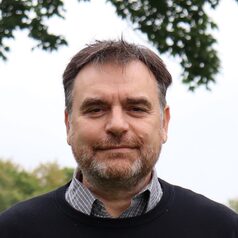
Naguib Mechawar
Neurobiologiste, Institut Douglas; Professeur titulaire, Département de psychiatrie, McGill University
Neuroscience, psychiatrie moléculaire
Less ![]()
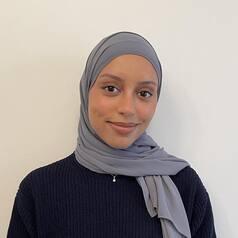
Nahid Widaatalla
Dalla Lana Fellow in Journalism and Health Impact, University of Toronto
Nahid is a freelance journalist and current Fellow in Journalism and Health Impact at the University of Toronto's Dalla Lana School of Public Health.
Less ![]()
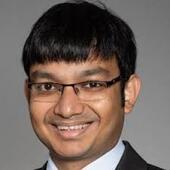
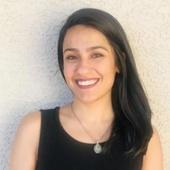
Nahrain Bet Younadam
Postdoctoral Research Associate in the School of Government and Public Policy, University of Arizona
Less ![]()
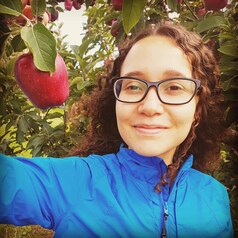
Naíla Barbosa da Costa
Chercheuse en écologie et génomique microbionne, Institut national de la recherche scientifique (INRS)
Chercheuse postdoctorale à l’INRS-ETE, je m’intéresse à l’écologie et évolution génomique des microbiomes aquatiques.
Less ![]()
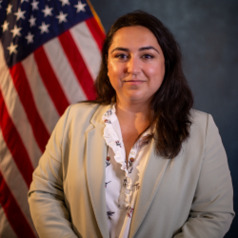
Nakissa Jahanbani
Assistant Professor at the Combating Terrorism Center, United States Military Academy West Point
Dr. Jahanbani is an Assistant Professor and Researcher at the Combating Terrorism Center and the Department of Social Sciences at the United States Military Academy. She teaches an introductory course on terrorism, SS465 (Terrorism: New Challenges). At the CTC, she studies various aspects of Iran’s network of proxy militias. She is currently working on a project that looks at the evolution of Iran’s relationship with its proxies in Iraq and Syria over time.
Her broader research agenda focuses on how states partner with violent non-state actors, such as rebel and terrorist groups, and how these organizations, in turn, are affected by these relationships. Her dissertation project focuses the causes and consequences of states supporting rebel groups. Dr. Jahanbani received her PhD and MA in Political Science from the University at Albany, and her BA in International Studies from the School of International Service at American University.
Less ![]()
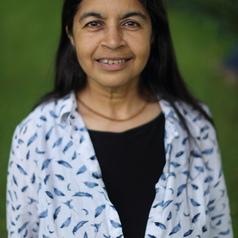
Nalini Joshi
Professor of Mathematics, University of Sydney
Nalini Joshi is a Georgina Sweet Australian Laureate Fellow in mathematics and the Chair of Applied Mathematics at the University of Sydney.
She develops mathematical methods to study solutions of integrable systems which arise as universal models in physics, such as the Painleve equations.Her more general research interests lie in non-linear differential and difference equations, with a particular focus on asymptotic methods. Currently,Nalini is particularly interested in creating a geometric framework to reveal properties of critical solutions of nonlinear models that reflect universal structures in physical models.
Specific research areas: Integrable systems, the Painlevé equations, geometric asymptotics, nonlinear dynamics, slow-fast systems, nonlinear waves, chaos, perturbation theory
Less ![]()

Nalla Socé Fall
Enseignant-chercheur, UFR des Sciences de l'Education, de la Formation et du Sport, Université Gaston Berger
Dr Nalla Socé Fall
Enseignant-chercheur à l’Université Gaston de Saint-Louis
Maître de Conférences Titulaire en Psychologie Sociale du Sport
Expert Conférencier World Athletics
Ouvrage: Histoire de la préparation olympique: le secret des vainqueurs
Less ![]()

Nan Tian
Senior Researcher and Acting Programme Director, Military Expenditure and Arms Production Programme, Stockholm International Peace Research Institute
Nan Tian is a senior researcher and acting programme director with the Military Expenditure and Arms Production Programme at SIPRI. He joined SIPRI in October 2016 and has been responsible for monitoring and managing the SIPRI Military Expenditure Database. His research work at SIPRI includes issues related to the trends of global military expenditure, the demand and consequences of military spending and the transparency and budgeting on military-related matters. Nan’s work also involves assessing and analysing trends in the global arms industry. His other research interests include the causes and impact of civil conflict and the inter-links between conflict and military spending. His doctoral thesis is titled 'Military Spending, Conflict and Development' and explores the relationship between military spending, civil conflict and economic development.
SUBJECT EXPERTISE
Military expenditure, civil war, economic growth, climate change
REGIONAL EXPERTISE
Africa
EDUCATION
PhD in Economics, University of Cape Town, South Africa
Less ![]()
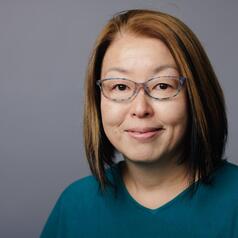
Nana Sato-Rossberg
Professor in Translation Studies, SOAS, University of London
Dr Nana Sato-Rossberg is a leading scholar in Translation Studies, with expertise in Japan and East Asia. She is currently Chair of the Centre for Translation Studies of SOAS. She is also an Executive Council member of International Association of Translation and Intercultural Studies and the founder of the East Asian Translation Studies conference series (since 2014). She is author of two monographs and five co-edited books in relation to Japan and East Asian Translation Studies. She has worked extensively on Japanese ethnic minority community and the translation of their cultures. She was PI of the UKRI/AHRC funded Covid-19 project Cultural translation and interpreting of Covid-19 risks among London’s migrant communities.
Research interests:
History of Translation Studies in Japan
Intergeneric translations (manga to film)
Translation of oral narratives or orality
Cultural translation
The relationship between translation and power
Game Studies
East Asian Translation Studies
Less ![]()
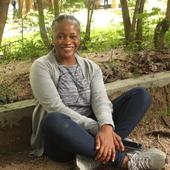
Nanchin Winifred Kazeh
Researcher and Teaching Assistant, A.P. Leventis Ornithological Research Institute
Less ![]()
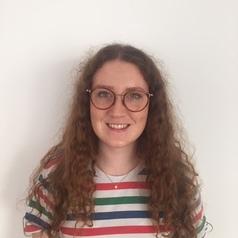
Nancy Bird
Postdoctoral research associate, UCL
I am a post-doctoral researcher in the Hellenthal group at UCL Genetics Institute. My research focuses on human population genetics.
My PhD, also at UCL, uncovered population structure and admixture in worldwide human groups and tried to relate these to historical factors, with a particular focus on African history.
Less ![]()

Nancy Coldham
PhD Student, Social Sciences, Royal Roads University
Nancy Coldham is currently enrolled in the Doctorate of Social Sciences Program. She is a founding partner of public affairs consulting firm The CG Group.
Less ![]()

Nancy Forster-Holt
Clinical Associate Professor of Innovation and Entrepreneurship, URI Aging Fellows, UMaine Center on Aging Research Associate, University of Rhode Island
Less ![]()
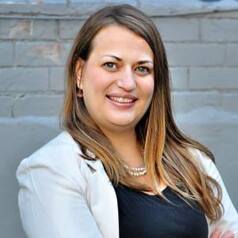
Nancy Goucher
Knowledge Mobilization Specialist, University of Waterloo
Nancy Goucher has been the Knowledge Mobilization Specialist at the University of Waterloo’s Water Institute for five years. In her role, she ensures the water research produced at the university is actively used and impacts the way communities and governments prepare for and manage increasing water-related threats. She brings an extensive network and her experience with policy decision-making to this position. Previous to the University of Waterloo, Nancy worked for 10+ years to shape water policy conversations across Canada, particularly in the Great Lakes. Nancy has previously held positions at Freshwater Future, Environmental Defence and the Forum for Leadership on Water (FLOW). She successfully advocated for a ban on the use of microbeads in pharmaceutical products, increased funding for the protection of the Great Lakes, brought Ontario into Western Basin of Lake Erie Collaborative Agreement, and worked to ensure the passage of the Great Lakes Protection Act. She graduated from the University of Waterloo with a Master’s degree in Planning in 2007. Her research focused on the identification of facilitating conditions for creating new knowledge and adapting to change in watershed-based organizations.
Less ![]()
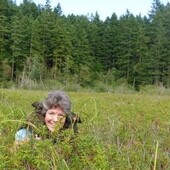
Nancy Job
Lead - Freshwater Biodiversity Programme, South African National Biodiversity Institute
Less ![]()
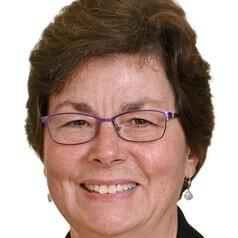
Nancy Kressin
Emeritus Professor of Medicine, Boston University
I am an Emeritus Professor of Medicine at the Boston University Chobanian & Avedesian School of Medicine and served as a Research Health Scientist in the Department of Veterans Affairs for 27 years. As a health services researcher, funded by the VA, NIH and non-profit foundations such as the American Heart Association and American Cancer Society, I have been studying racial and ethnic disparities in health care, patients' responses to treatment recommendations, adherence to recommended therapies, and health outcomes for 30 years, with over 150 peer reviewed scientific publications.
Less ![]()
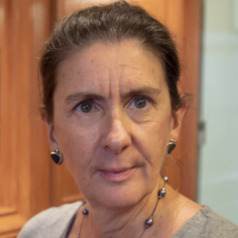
Nancy Maveety
Professor of Political Science, Tulane University
Nancy Maveety is Professor of Political Science at Tulane University in New Orleans, Louisiana, where she teaches courses in constitutional law, judicial decision-making, and her latest special topics class “Booze, Drugs and the Courts.” She is the author of" Justice Sandra Day O'Connor: Strategist on the Supreme Court" and "Glass and Gavel: the U.S. Supreme Court and Alcohol," as well as many scholarly works on the U.S. Supreme Court and American judicial politics, most recently Picking Judges (2016), a study of federal judicial selection politics styled as a presidential briefing book. She has also written an academic satire novel set in the Crescent City, The Stagnant Pool: Scholars Below Sea Level (2000).
Less ![]()
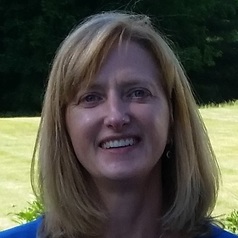
Nancy Modesitt
Nancy Modesitt is an Associate Professor at the University of Baltimore School of Law, where she teaches Employment Law and Employment Discrimination. Before becoming a law professor, she worked at the U.S. Department of Justice as well as at several large law firms, where she specialized in employment law, including employment discrimination law. She is the lead author of Whistleblowing: The Law of Retaliatory Discharge. In addition to her academic work on whistleblowing, Professor Modesitt has testified before the Equal Employment Opportunity Commission on its strategic enforcement plan and proposed restructuring that agency to improve its ability to combat discrimination.
Less ![]()
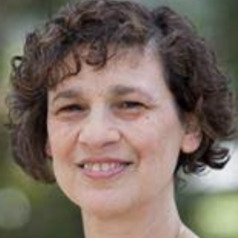
Nancy Sadka
Research Fellow, Olga Tennison Autism Research Centre, La Trobe University
Dr Nancy Sadka is a Research Fellow at La Trobe University's Olga Tennison Autism Research Centre (OTARC), primarily in the Identification and Diagnosis research program. Dr Sadka' research originally focused on cognitive and curriculum development until she developed a passion for, and an interest in, autism.
Dr Sadka gained a Bachelor of Arts in Human Development (Early Childhood Education) with Distinction from the Lebanese American University. Dr Sadka has two minors in graduate Theology and Psychology and is fluent in French and Arabic. She was then awarded a scholarship to study in the United States, where she received her Masters and PhD from Bob Jones University in the areas of Cognitive Development and Curriculum Instruction.
Dr Sadka lectured on play and early development at the graduate department of the University of South Carolina and the subject of creative dramatics and learning at the Lebanese American University. Dr Sadka has a passion for research on autism spectrum disorder, where this research can be translated into the community to help support parents and carers of people on the autism spectrum across the lifespan. She also has an interest in co-occurring conditions in the early years including, but not limited to, Sleep Challenges, Anxiety, Attention-Deficit/Hyperactivity Disorder (ADHD), and Intellectual Disability.
In addition to her work in academia, Dr Sadka serves on several boards in the community for strategic planning and implementation of support for people with disabilities. She is also committed to working with faith-based communities for disability inclusion.
Less ![]()
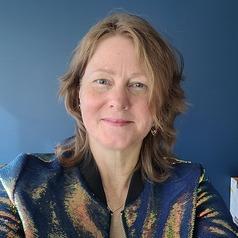
Nancy Southin
Associate Professor of Supply Chain Management, Thompson Rivers University
Nancy Southin is an Associate Professor at the Bob Gaglardi School of Business and Economics, Thompson Rivers University, where she teaches a variety of supply chain management courses. Her significant experience as a supply chain manager inspires her to pass on the importance of good supply chain management practices to students. Nancy’s research interests include responsible supply chains, and teaching innovations. She received her PhD from the University of Calgary.
Education
- PhD (Management with Specialization in Operations Management)
- Masters of Business Administration (University of Calgary)
- Bachelor of Commerce (Entrepreneurial Management) (Royal Roads University)
- Diploma of Technology (Operations Management) (BC Institute of Technology)
Less ![]()

Nancy E. Landrum, Ph.D.
Professor of Sustainable Business Transformation, Munich Business School
Nancy E. Landrum, Ph.D. is a Professor of Sustainable Business Transformation at Munich Business School and Visiting Professor at Les Roches Global Hospitality Education. Dr. Landrum is co-author of Sustainable Business: An Executive’s Primer, co-founder of the Sustainable Business Network of Central Arkansas, and Principal at Sustainable Business Design Consulting and the Sustainability Training Institute. Dr. Landrum’s consulting, teaching, research, and service interests are in sustainable business practices, strong sustainability, stages of sustainability, biomimicry, circular economy, and base of the pyramid strategies.
Less ![]()
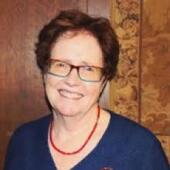
Nancy E. Mayo
Distinguished James McGill Professor, School of Physical & Occupational Therapy, McGill University
Less ![]()
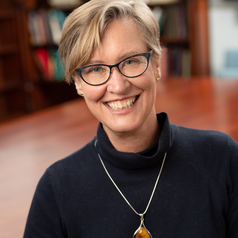
Nancy J. Jacobs
Professor of History, Brown University
I am an historian of South Africa, of colonial Africa, of the environment, of animals, and of knowledge about the environment and animals. My research seeks out workings of power in obscure corners, in a quiet South African town, in scientific collaborations, in a mysterious and forgotten diplomatic initiative, in everyday lives of Africans living under European rule, and in interspecies relationships.
In one sense, I am a traditional social historian: The workings of class, race, and gender have been central to all my research. In considering those categories, I have tried to find fresh insights by looking at the more-than-human and power/knowledge relationships.
I've found microhistory and biography to provide an excellent way to frame these stories. Biography led me to an indepth study of the last-minutes negotations for an all-party election in South Africa in 1994.
With my current project, a transnational history of African Grey Parrots, I return to environmental history. With an emphasis on relations between companion species, I will add species to groups that know each other, negotiate with each other, and exercise power over each other.
Less ![]()

Nancy M. P. King
Emeritus Professor of Social Sciences and Health Policy, Wake Forest University
Less ![]()
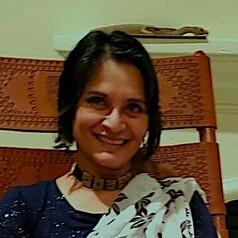
Nandini Bhattacharya
Professor of English, Texas A&M University
My primary fields of expertise are Postcolonial Studies and Colonial Discourse Analysis, Creative Writing, World Literature, South Asia Studies and Indian Cinema, Women’s and Gender Studies, Film, Diaspora, Migrations and Exiles, Travel Writing, and Affect Theory. I am Professor of English at Texas A&M University and an affiliate of its Women's and Gender Studies, Africana Studies, and Film Studies programs. I founded and directed (2007-2017) the South Asia Working Group of the Glasscock Humanities Center at Texas A&M University. I have published three academic monographs: Hindi Cinema: Repeating the Subject (London: Routledge, 2012; published as part of the series “Intersections: Colonial and Postcolonial Histories,” ed. Gyan Pandey); Slavery, Colonialism and Connoisseurship: Gender and Eighteenth-Century Literary Transnationalism (Ashgate Press, 2006); and Reading the Splendid Body: Gender and Consumerism in Eighteenth-century British Writing on India (Associated University Presses, 1998).
From 2012-2014 I was Director of Graduate Studies in English at Texas A&M University.
Between 2003 and 2006 I served as Chair of the Department of Women's and Gender Studies at the University of Toledo.
I also have an MFA in Writing (2023) from the Warren Wilson College MFA Program for Writers. My novel Love’s Garden was published in 2020, and my second novel, Homeland Blues, is agented and under submission to publishers.
Less ![]()
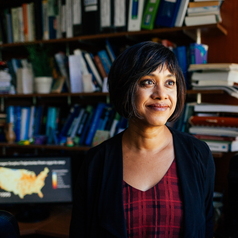
Nandita Basu
Professor and Tier I Canada Research Chair of Global Water Sustainability and Ecohydrology, University of Waterloo
Nandita Basu is a Professor and Tier I Canada Research Chair in Global Water Sustainability and Ecohydrology at the University of Waterloo in Canada
Less ![]()
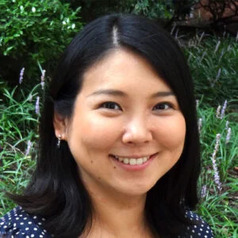
Nao Hagiwara
Professor of Public Health Sciences, Director of the Program on Health Disparities and Community Engagement Research, University of Virginia
Nao Hagiwara, PhD is a Professor of Public Health Sciences at the University of Virginia. With training background in basic experimental social psychology, she grounds her applied health and healthcare disparities research in social psychology theories of stereotyping, prejudice, and discrimination. She has obtained multiple NIH grants on healthcare providers' implicit bias and published over 50 scientific articles and book chapters. Her recent work on provider implicit bias has appeared in flagship journals and scientific magazines, such as the Lancet and Scientific American.
Less ![]()
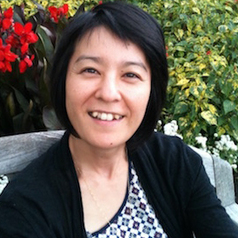
Naoko Wake
Professor of History, Michigan State University
I am a historian of gender, sexuality, and illness in the 20th century United States and the Pacific Rim. I am intrigued by the ever-present tension between objectivity and subjectivity in medical and cultural practices, and by the historically changing ways in which sufferers, caregivers, and physicians have grappled with such tension.
I have written on the history of psychiatric and psychoanalytic approaches to homosexuality in my first book "Private Practices: Harry Stack Sullivan, the Science of Homosexuality, and American Liberalism" (Rutgers, 2011).
My second monograph concerns Japanese American and Korean American survivors of the atomic bombs dropped on Hiroshima and Nagasaki in 1945, titled "American Survivors: Trans-Pacific Memories of Hiroshima and Nagasaki" (Cambridge, 2021). In this work, I have explored gender, racial, cross-national identities that emerged in Asia and Asian America in post-colonial contexts, and a range of grass-roots activism that took shape in response to the nuclear destruction: patient rights, civil rights, anti-war and -nuclear activism. I continue to be fascinated by personal experiences and memories of trauma, pain, and illness, and how they coexist and collide with social and cultural institutions.
My current project is about the history of disability among Asian Pacific Islander Desi Americans. I work with graduate students in the US modern history, history of gender and sexuality, Asian American history, history of medicine, and history of nuclear weaponry.
Less ![]()
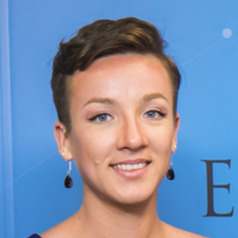
Naomi Baes
Research Assistant in concept creep - Melbourne School of Psychological Sciences, The University of Melbourne
PhD student at the University of Melbourne - Social psychology/ Natural Language Processing
Less ![]()
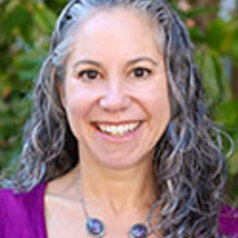
Naomi Goldstein
Professor of Psychological and Brain Sciences, Drexel University
Naomi E. Goldstein, PhD, is a Professor of Psychology, Co-Director of the JD/PhD Program in Law and Psychology, and Director of the Juvenile Justice Research and Reform (JJR&R) Lab at Drexel University. Dr. Goldstein collaborates with community stakeholders to use social science research to improve juvenile justice policy and practice.
In partnership with juvenile justice agencies, she conducts translational research to guide large-scale system change, leads implementation projects to promote high-quality dissemination of juvenile justice reforms, and evaluates the effects of new programs and policy changes on youth and communities. For more than 20 years, her interdisciplinary work has emphasized the role of adolescent development in legal decision-making, justice-system policies and practices, and legal outcomes. She currently focuses on cross-systems efforts to dismantle the school-to-prison pipeline, reform juvenile probation systems, establish positive police practices, and address racial and ethnic inequalities in the justice system.
Dr. Goldstein has served as primary investigator, co-investigator, or consultant on more than $20 million in federal, state, and foundation grants and has authored or co-authored more than 100 peer-reviewed articles and book chapters, books, forensic assessment tools, juvenile justice treatment manuals, and police training curricula. Dr. Goldstein has authored, co-authored, and contributed to national and state juvenile justice legislation, policy reports, and amicus briefs to the U.S. Supreme Court. Additionally, she has served on the editorial boards of multiple academic journals, national organizations' strategic planning and research advisory committees, and juvenile justice work groups and policy committees. Using her translational research and implementation science expertise, Dr. Goldstein and her interdisciplinary Juvenile Justice Research and Reform Lab also provide training and technical assistance to jurisdictions and agencies seeking to enhance their juvenile justice systems.
Less ![]()
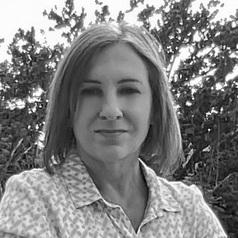
Naomi Hay
Bachelor of Design (Honours) Convenor and Lecturer, School of Art and Design, Australian National University
Naomi is a Lecturer in the School of Art and Design, ANU, and researcher with the Institute for Climate, Energy, and Disaster Solutions (ICEDS). She holds a Bachelor Degree in the Built Environment (Int.Des.)(QUT), a Master of Design Futures (Hons.) (Griffith), and a PhD in Design (Griffith). Naomi’s research focuses on the role of design in strengthening community resilience for sustainable futures, where design is examined as a change agent in the arena of disaster risk and adaptive capacity in a changing climate. She has a strong commitment to the development of socially and environmentally responsible design practice working on collaborative projects with community, industry partners, regional councils, and not for profit groups. Specifically, she has extensive experience across stakeholder relations, co-design processes, and best practice processes on multi-actor teams.
Less ![]()

Naomi Hull
Research Assistant, Australian National University
Post Registration Bachelor of Nursing (ACU) 1995
Grad Cert Crit Care Nursing (NSW College of Nursing) 2001
IBCLC 2010
Masters of Public Health (Nutrition) UQ
As well as her university affiliation, Naomi Hull is also Senior Manager Breastfeeding Information and Research, Australian Breastfeeding Association.
Naomi Hull is a Registered Nurse and an IBCLC of 13yrs during which time she has had her own Private Practice in Brisbane. She attained a Masters of Public Health (Nutrition) in 2017. Her passion for breastfeeding and lactation began after the birth of her first baby and led to training as a peer support counsellor in 2006. During her Master of Public Health, her interest in the ‘bigger picture’ grew stronger and for this reason, chose to look at the implementation of the Australian National Breastfeeding Strategy (2010-2015) as the topic of her Dissertation. Naomi went on from there to become the National Coordinator of the World Breastfeeding Trends Initiative - bringing together the Australian team who have now completed two assessments of Australia’s policies and programs in 2018 and 2023. Naomi also works full-time in the National Support office of the Australian Breastfeeding Association, as a Senior Manager. Key priorities are to ensure up-to-date evidence-based information, advocacy and support of research both within the Association and supporting external projects that are relevant to ABA's mission and vision. She continues to feel strongly about finding a way to improve the breastfeeding experience for families by way of advocating for policy change in Australia.
Less ![]()
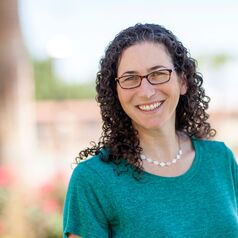
Naomi Levy
Associate Professor of Political Science, Santa Clara University
Naomi Levy is Associate Professor of Political Science at Santa Clara University, a faculty affiliate at the Possibility Lab, and is a member of the Everyday Peace Indicators board of directors. Dr. Levy’s research centers on the relationships between ordinary citizens and the state. She employs community-based participatory methods to understand how the state can legitimize itself vis-à-vis the people and what might interrupt this process. With her work, she seeks to facilitate government responsiveness to community needs by amplifying the voices that are best placed to guide public servants.
Levy received her PhD from the Department of Political Science at the University of California, Berkeley, and also holds an MA in Social Sciences of Education from Stanford University School of Education. Her scholarship has been published in a broad range of academic journals, and she has received funding for her work from the American Council of Learned Societies, the Minerva Initiative, the Carnegie Corporation of New York, and the California Community Foundation / California 100 Initiative.
Less ![]()
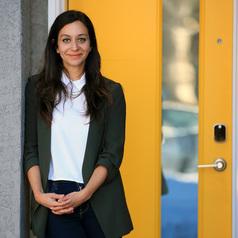
Naomi Lightman
Associate Professor of Sociology, Toronto Metropolitan University
Naomi Lightman is Associate Professor of Sociology at Toronto Metropolitan University. Her areas of research expertise include migration, care work, gender, inequality, and research methodology. Her academic work has been published in journals including European Sociological Review, Journal of European Social Policy, International Migration Review and the Social Politics. In addition, she is the co-author of the second edition of the textbook Social Policy in Canada. Dr. Lightman has collaborated on research focused on immigration, race, and inequality with various social agencies and government bodies including Social Planning Toronto, the Wellesley Institute, the Calgary Local Immigration Partnership and the Calgary Immigrant Women’s Association.
Less ![]()
- Market Data























